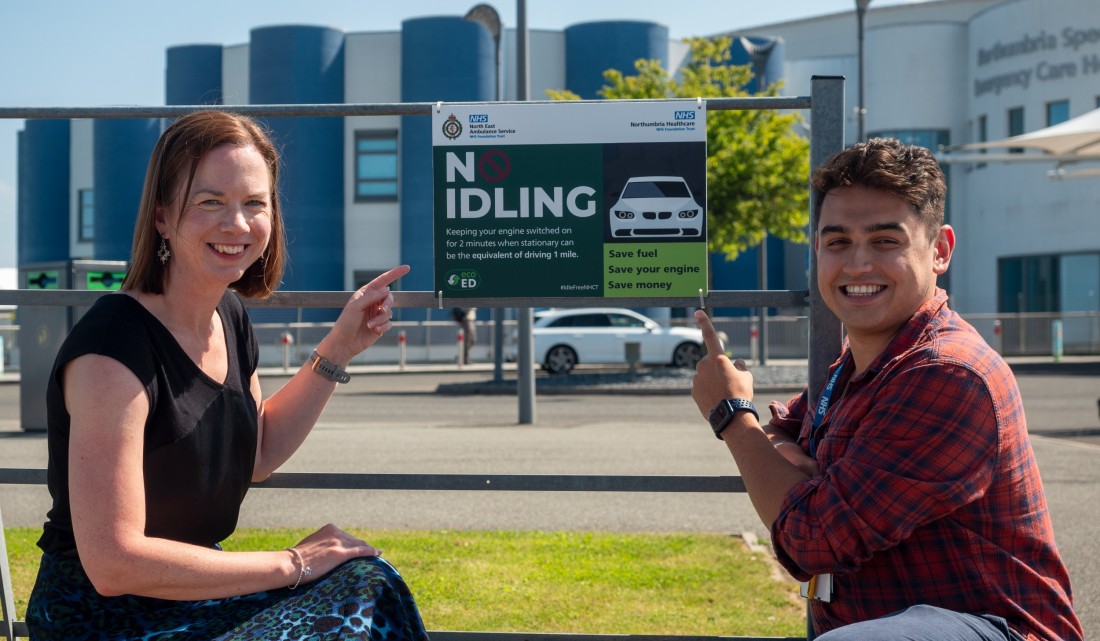North East Hospitals and Ambulance Service to Improve Air Quality

Northumbria Healthcare NHS Foundation Trust has signed a commitment alongside the North East Ambulance Service (NEAS) to ask ambulance crews to turn off their engines when they stop at Northumbria Specialist Emergency Care Hospital in Cramlington.
Whilst the commitment, which has been signed by the chief executives of both trusts, primarily focuses on ambulances, it will also be extended to public car parks and drop-off bays to highlight the environmental and health risks that come with leaving an engine running.
Newcastle Upon Tyne Hospitals Foundation Trust will also be rolling out the same initiative at the Royal Victoria Infirmary.
Leaving engines running whilst stationary concentrates harmful emissions, such as nitrous oxide, which can have damaging health impacts on patients, staff and visitors, especially those who are vulnerable and have underlying health conditions.
A small action that leads to big results
Whilst there will be some occasions where ambulance crews are unable to turn off their engines – such as cooling or warming vehicles or using critical equipment – the ambulance service believes this small step can have a large impact.
George Menon, emergency department sustainability fellow, said: “Emergency departments, by their nature, are resource heavy so we must target areas where it’s possible to make sustainable changes while maintaining our high level of patient care.
“By working through the action points set out by the Royal College of Emergency Medicine, we have been able to make significant positive change and work towards becoming an accredited Green Emergency Department. Implementing a no idling policy for vehicles outside the department is one of those actions.”
Head of sustainability, Clare Winter, added: “Through signing this commitment we are encouraging ambulance crews to turn off their engines when it’s not necessary to have them running. Everyone’s contribution to this will make a significant difference in reducing pollution levels.
“Implementing this change also aligns with our net zero by 2040 as stated in the Net Zero Northumbria Action Plan.”
Martin Gibson, environmental sustainability manager at NEAS, also commented: “Our ambulance crews serve the whole of the North East, from the borders of Yorkshire to Scotland. Therefore, although this commitment specifically covers Northumbria Specialist Emergency Care Hospital and the Royal Victoria Infirmary, we are applying this same principle across the region to all our staff and volunteers.
“There will be some occasions when it isn’t possible to turn off engines, such as when they need to cool or warm their vehicle or using critical equipment. But with more than 400 NEAS vehicles on the road at any given time, we think we can make a significant impact on the health of our local population, including our own colleagues, by switching them off when we are able to.”

